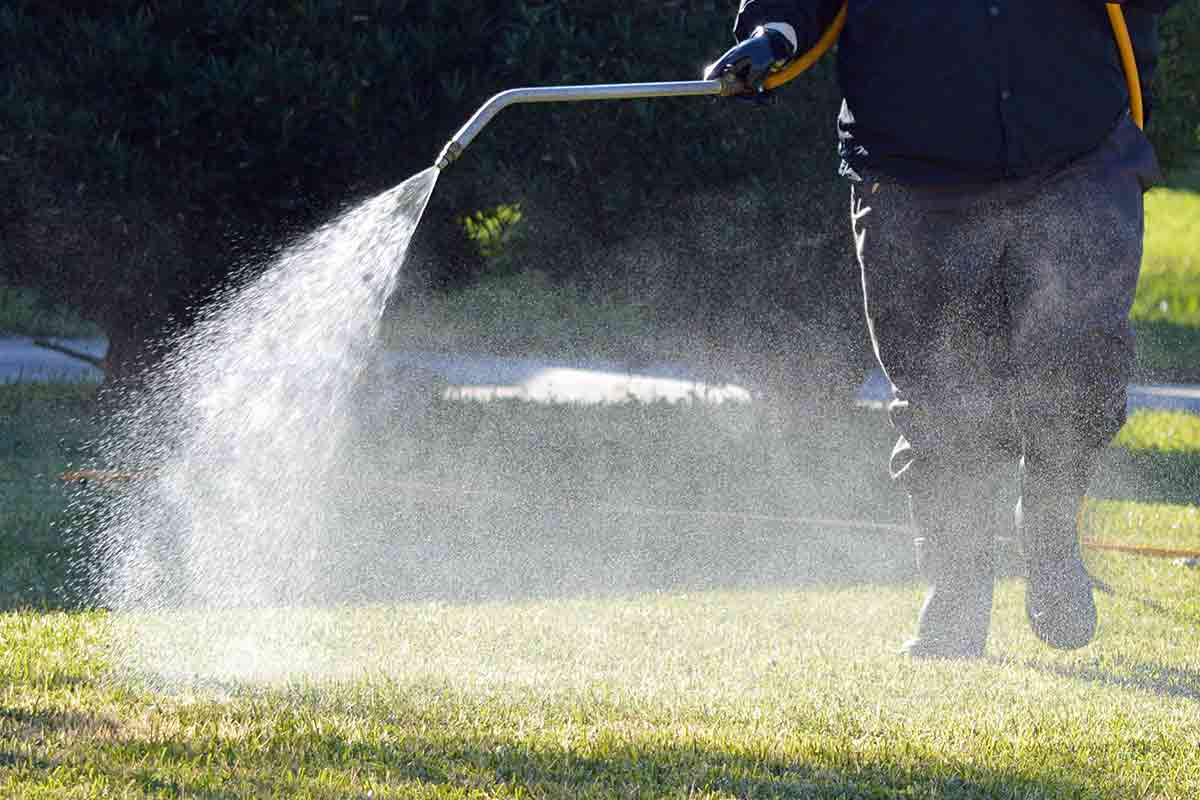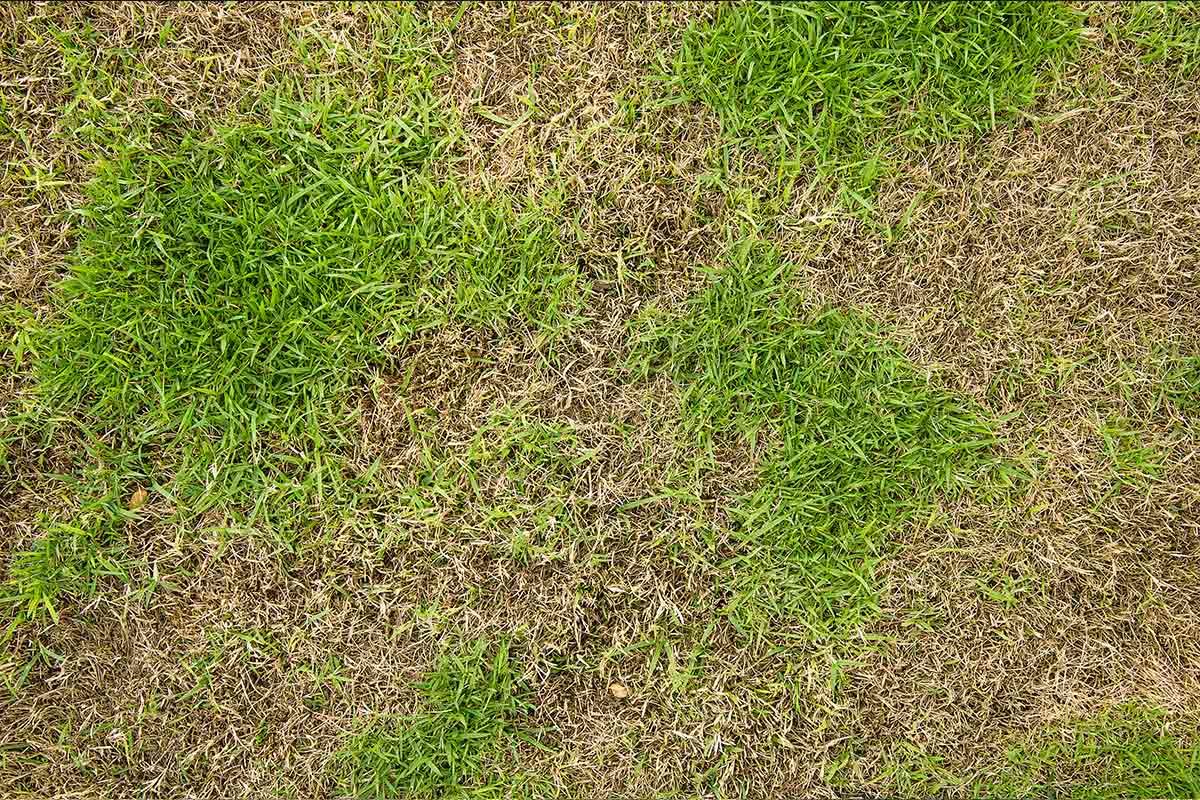Quality matters when hiring for a big project. Call a Best Pick now!
Green grass makes for a beautiful landscape, but it’s not always easy to achieve. If you find yourself looking out at an unhappy yard, wondering how to revive dead grass, you may be tempted to turn to chemical fertilizers in an attempt to cultivate a lush lawn.
But before you make a mad dash for any lawn care product claiming to work miracles, take a look at these three facts about fertilizers. A cheaper, more environmentally friendly solution may turn out to be your best bet.
1. Miracle Products Aren’t Perfect
 Miracle-Gro and other popular manufactured fertilizers are a fast, easy solution for plants that need a little perking up. These products are water soluble, so plants receive the nutrients quickly and will often appear healthier within a matter of hours.
Miracle-Gro and other popular manufactured fertilizers are a fast, easy solution for plants that need a little perking up. These products are water soluble, so plants receive the nutrients quickly and will often appear healthier within a matter of hours.
This may seem great on the surface, but don’t rely on quick-fix liquid fertilizer for long periods of time. Synthetic fertilizers do give plants some vital nutrients, but they may deliver those compounds in the wrong amounts, and they don’t improve the overall soil quality.
If your grass or plants are dying, it’s more important to get to the root of the problem rather than simply treating the symptoms you can see. Members of a local garden club or USDA Cooperative Extension will be able to help you test your soil and come up with a plan for getting your yard back on track.
Shift your focus to the quality of your soil, and you’ll see your garden flourish—no need to stock up on synthetic fertilizer.
2. Overuse of Chemical Fertilizers Can Cause Environmental Problems
 Synthetic chemical fertilizers typically contain nitrogen, phosphorous, and potassium derived from various chemical compounds. Your soil may need these nutrients, but it may not—only a soil test will give you an accurate picture of your yard’s specific needs.
Synthetic chemical fertilizers typically contain nitrogen, phosphorous, and potassium derived from various chemical compounds. Your soil may need these nutrients, but it may not—only a soil test will give you an accurate picture of your yard’s specific needs.
If synthetic fertilizers are used in the wrong amounts or for extended periods of time, the chemicals that the soil no longer needs can leach into the groundwater table and contribute to nutrient pollution, causing a serious ecosystem imbalance.
Approximately half of all Americans rely on groundwater wells as their primary source for drinking water, so nutrient pollution in the groundwater table is a concern nationwide. Polluted or contaminated drinking water causes a host of health problems, especially for small children, pregnant women, and those with compromised immune systems.
Excess amounts of nitrogen and phosphorus in rivers, lakes, and oceans can also cause algal blooms, or an overgrowth of algae and bacteria. Too much algae in a body of water can lower oxygen levels in the water, which harms or kills fish and other organisms.
3. Miracle Fertilizers Can Harm Your Plants—And You
 Nutrient pollution from overuse of synthetic fertilizers is a global problem, and a small-scale version of it can occur in your backyard, too.
Nutrient pollution from overuse of synthetic fertilizers is a global problem, and a small-scale version of it can occur in your backyard, too.
Since water-soluble synthetic fertilizers only address the immediate needs of the plant and not the soil, you ultimately end up overfertilizing your lawn and plants and doing nothing for your soil quality. Poor-quality soil results in puny plants, which makes you reach for the fertilizer, and the whole cycle begins again.
When plants are overfertilized with synthetic compounds, chemicals can build up on the plant and in the soil. This fertilizer buildup is especially concerning on fruits and veggies that may end up on your dinner table.
If you garden, it’s likely that you do so for pleasure and to provide your family with fresh, healthy food, so it’s best to stay away from quick-fix fertilizers that can harm your health if used improperly.
On top of that, soil that is nutritionally out of whack just isn’t healthy for your plants. The more imbalanced your garden’s soil becomes, the more time and money you’ll need to fix it.
The Bottom Line
The easiest solution may not be the best solution when it comes to yard and turf care. Miracle lawn care products make a lot of wonderful claims, but it’s best to proceed with caution. Start with a more natural approach instead and learn to compost.
Composting is one of the best and most cost-effective ways to cultivate the high-quality, rich soil that is so important to a healthy lawn or garden.
Don’t send your fruit peels, vegetable scraps, or coffee grounds to the landfill. By composting, you’ll be doing your part to keep your household’s waste to a minimum and working toward a healthy yard at the same time.
Cultivating healthy soil (and plants) takes time and effort, but the results are well worth it in the end. And don’t forget about the many resources at your fingertips. If you get in over your head, call a Best Pick Lawn Treatment expert for help. With some planning and time spent in the yard, your lawn will be the envy of the neighborhood.























